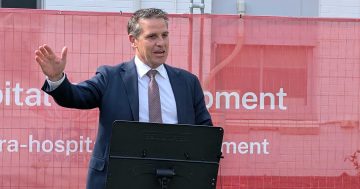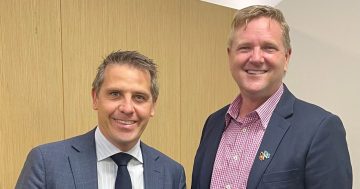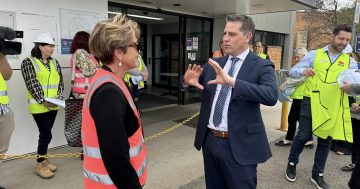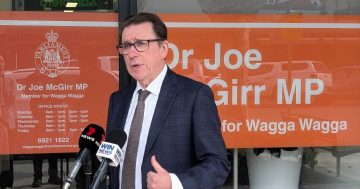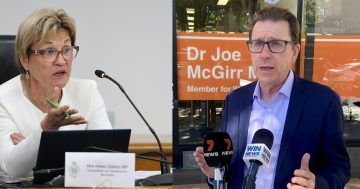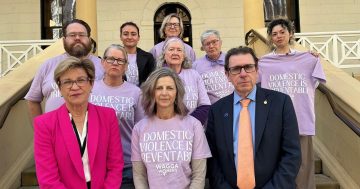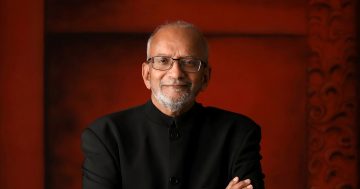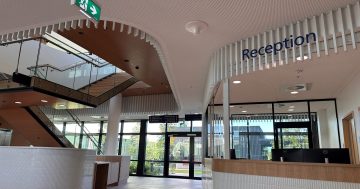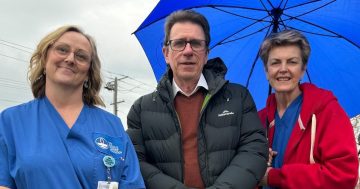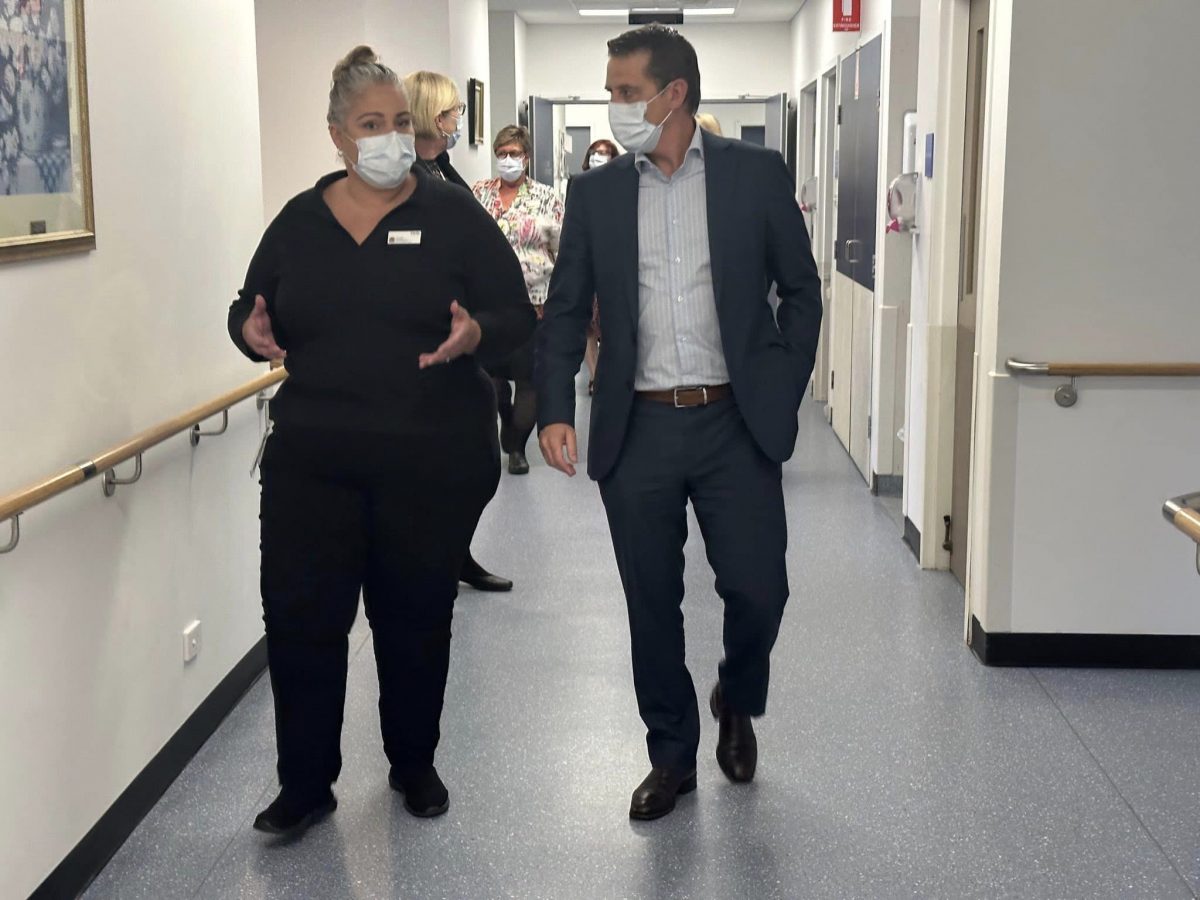
NSW Health and Regional Health Minister Ryan Park praised MLHD staff during his Riverina tour. Photo: Supplied.
The state’s newly minted Health and Regional Health Minister Ryan Park has been on the front foot demonstrating his interest in the bush with a tour of the Riverina.
Mr Park toured health services in the Murrumbidgee Local Health District this week including Griffith, Leeton, Junee and Wagga.
“Murrumbidgee Local Health District is incredibly diverse, with more than 5000 staff working across 33 hospitals and 12 primary health care centres,” he said.
“I’m looking forward to working closely with NSW Health’s Regional Health Division to ensure people living in these communities receive the very best health care.”
He met with the region’s newly reelected independent members Helen Dalton and Dr Joe McGirr, who have both been critical of the NSW Government’s approach to health care in the regions.
Ms Dalton has maintained a fractious relationship with MLHD and was prevented from visiting sate health facilities during the election campaign but this week joined Mr Park in touring Griffith Base Hospital, where a $250 million redevelopment is underway, and Leeton Hospital, where a $3.7 million upgrade is almost complete.
Ms Dalton said that Mr Park had visited Griffith several times as shadow minister and was familiar with the issues.
“A lot of the work’s been done, we’ve given the previous government the solutions and we just need action now,” she said.
“Ryan knows that I’m pretty impatient and he knows what I think needs to be done.”
Ms Dalton has been pushing for Griffith to break away from MLHD and has raised the issue with the new minister.
“I want our own board and our own budget and now that he’s instigated a special commission of inquiry into the health districts, I will be pushing him for a pilot scheme to allow Griffith to set the standard,” she said.
“There’s a lot of people that have left the health sector because of the culture of the system and they love nursing, but they just couldn’t handle too much more.
“So we’ve got to look after our nurses.”
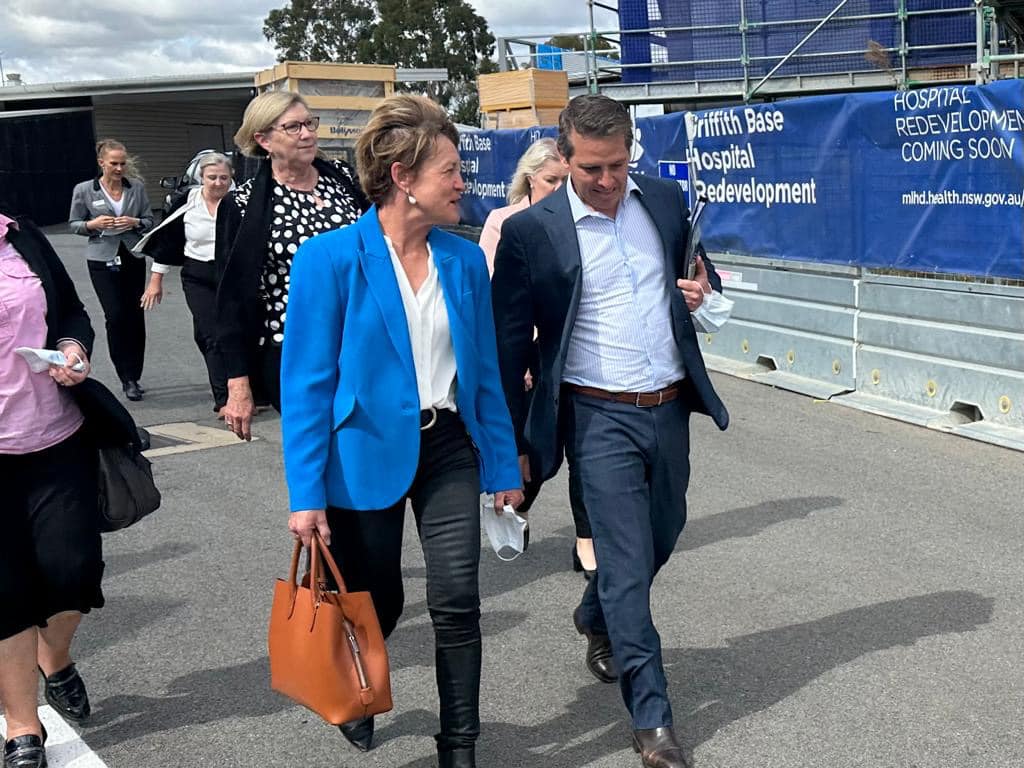
Murray MP Helen Dalton joined Minister Ryan Park to tour Leeton and Griffith health facilities. Photo: Supplied.
Following the election, Wagga MP Dr Joe McGirr expressed his disappointment with Labor’s decision to place the two health portfolios under the same minister, something that seems at odds with the recommendations of the regional health inquiry.
“It is disappointing that there’s not a separate person as the Regional Health Minister,” said Dr McGirr.
“But it is still a separate ministry, which is good and I’ll be working as constructively as I can with the Government to get those outcomes in regional and overall health.
“And I’ll be holding them accountable for the implementation of the inquiry and making sure those outcomes happen.”
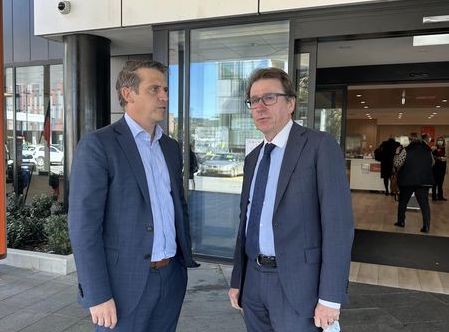
Dr Joe McGirr raised local concerns with Minister Ryan Park in Wagga. Photo: Supplied.
While the minister’s visit was positively received and focussed on the upgrades and new infrastructure and services, Mr Park faces a daunting task with ongoing protests over staff-patient ratios and allegations of systemic dysfunction.
In a social media post after the Riverina trip, the minister said that the staff were “the most impressive part of the visits”.
“We’re going to rebuild our health and hospital system,” he declared.
“And it will begin with backing in our staff. Recruiting and retaining them.”
Dr McGirr has long advocated for a stand-alone regional health department and also discussed specific local issues with Mr Park, including out-of-pocket expenses for radiation therapy and the ongoing tension over Wagga City Council’s deal with the previous government to purchase the former ambulance station on Johnston Street.
“It’s very important that myself and the independent regional colleagues as well as all regional MPs, hold the Government to account that they don’t forget the regions,” said Dr McGirr.







